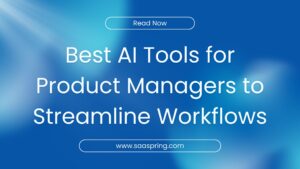Today, we read about the Best AI Tools for Product Managers to Streamline Workflows. Managing a product from concept to launch is a demanding job. Product managers constantly juggle customer feedback, market research, roadmaps, stakeholder communication, and cross-functional collaboration. With so much happening at once, efficiency is the key to success. That’s where AI tools step in.
In this article, we’ll explore some of the best AI-powered tools for product managers, explain their key benefits, and showcase real-world case studies where these tools have transformed workflows.
1. Notion AI – For Documentation and Knowledge Management
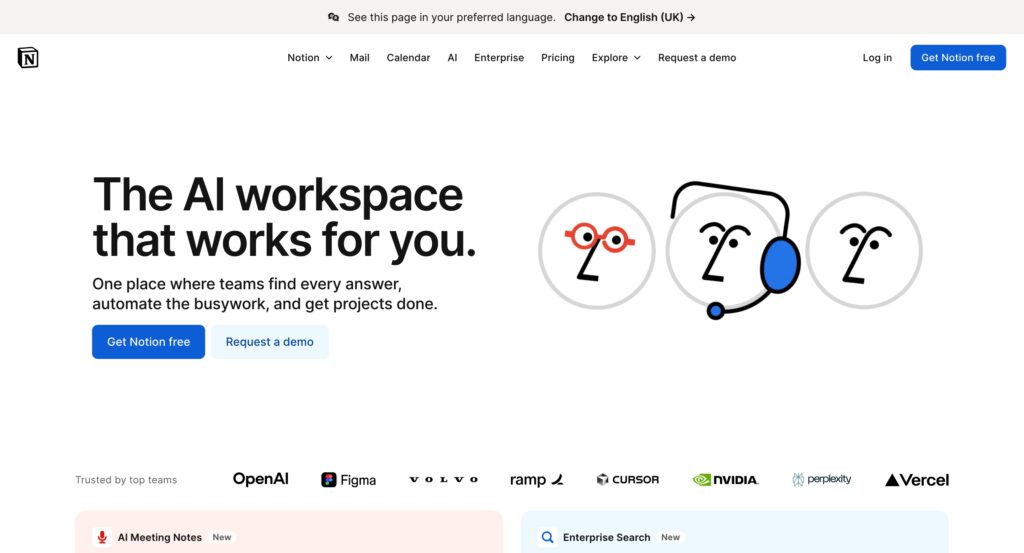
Why it’s great:
Notion AI helps product managers write clearer project briefs, summarize meeting notes, and generate documentation faster. It can also suggest improvements to workflows, making it easier for teams to stay aligned.
Key benefits:
- Automated meeting note summarization
- Quick draft creation for PRDs (Product Requirement Documents)
- Enhanced cross-team knowledge sharing
Case Study:
A SaaS startup with a team of 20 product developers integrated Notion AI into their workflow. Previously, their PRD writing and review process took an average of 3–4 days. With Notion AI, they cut it down to just 1 day. The AI-powered summaries also allowed new team members to get up to speed 40% faster, reducing onboarding friction.
2. ClickUp with AI – For Task Management and Prioritization
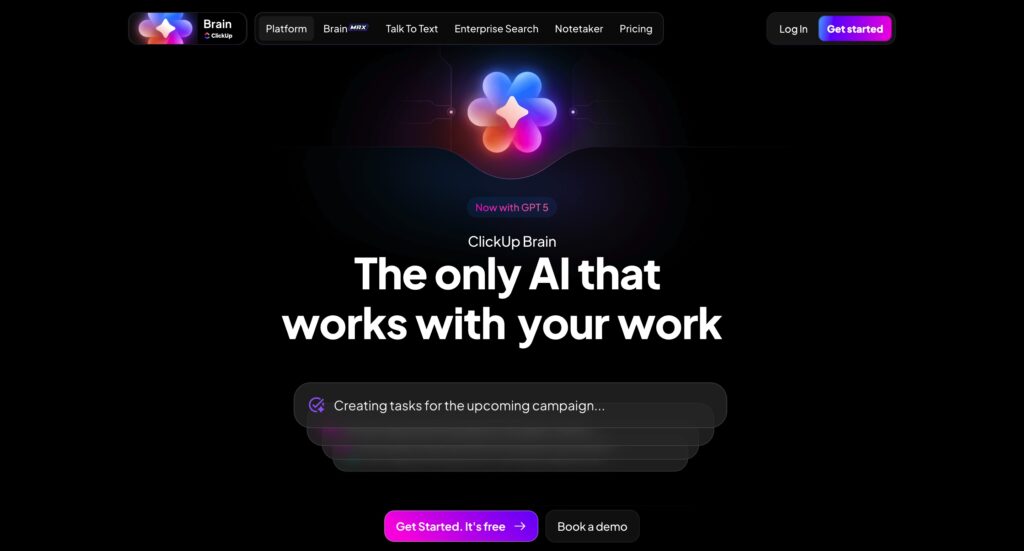
Why it’s great:
ClickUp’s AI assistant can suggest task priorities, automatically generate project summaries, and even highlight bottlenecks in workflows.
Key benefits:
- Prioritization of tasks based on urgency and impact
- AI-generated project updates for stakeholders
- Smarter workload distribution
Case Study:
An e-commerce company managing multiple product lines used ClickUp AI to manage product launch cycles. Before, they relied on manual status updates, which led to delays in communication. After implementing ClickUp AI, weekly project update meetings were cut in half, saving around 12 hours per month across the team.
3. Figma AI – For Product Design Collaboration
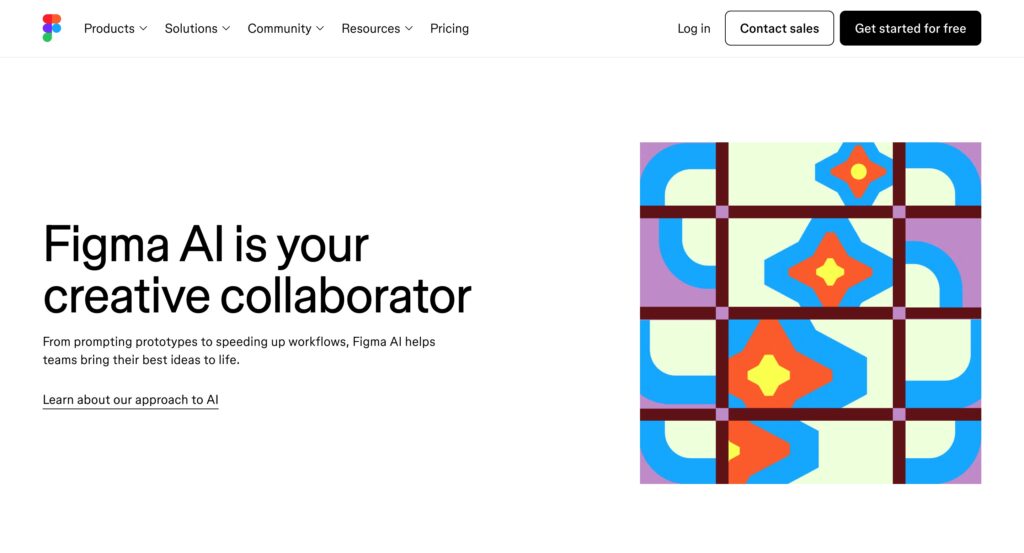
Why it’s great:
Product managers often need to collaborate with designers. Figma’s AI-powered features can auto-generate design variations, suggest improvements, and make prototyping faster.
Key benefits:
- Automated design suggestions
- Faster iteration cycles
- Reduced back-and-forth between PMs and designers
Case Study:
A fintech company used Figma AI to prototype a new mobile app feature. Instead of taking 3 weeks to produce design variations for user testing, the AI cut the process down to 1 week. This acceleration allowed the company to launch its feature 2 weeks ahead of schedule, giving them a competitive edge.
4. Amplitude with AI – For Data-Driven Decision Making
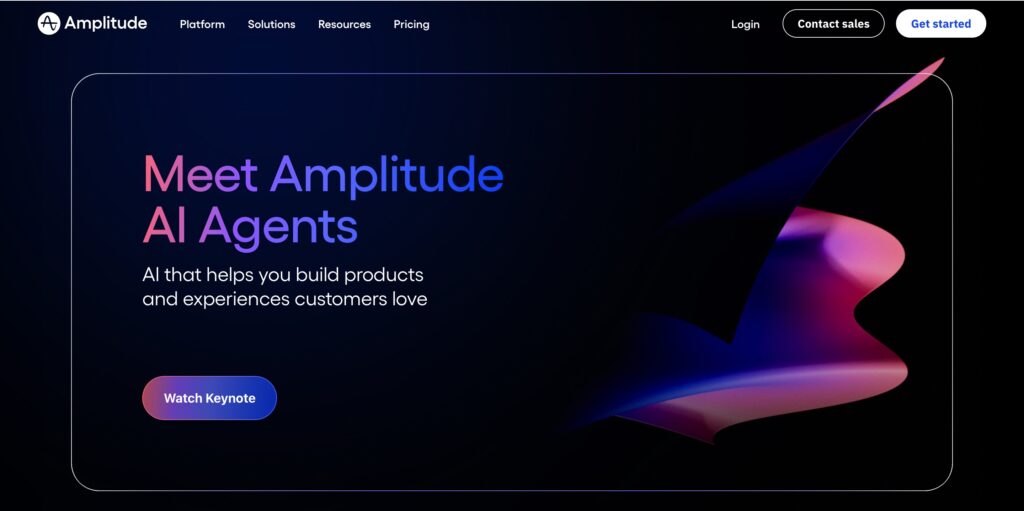
Why it’s great:
AI within Amplitude helps product managers uncover user behavior patterns, predict churn, and identify opportunities for product growth.
Key benefits:
- AI-driven user insights
- Better product roadmap alignment with customer needs
- Predictive analytics for retention strategies
Case Study:
A mobile gaming company used Amplitude AI to understand why players were dropping off after level 5. The AI highlighted friction points in onboarding and gameplay. After adjusting their design based on the insights, retention rates improved by 18% in just two months.
5. UserTesting AI – For Customer Feedback at Scale
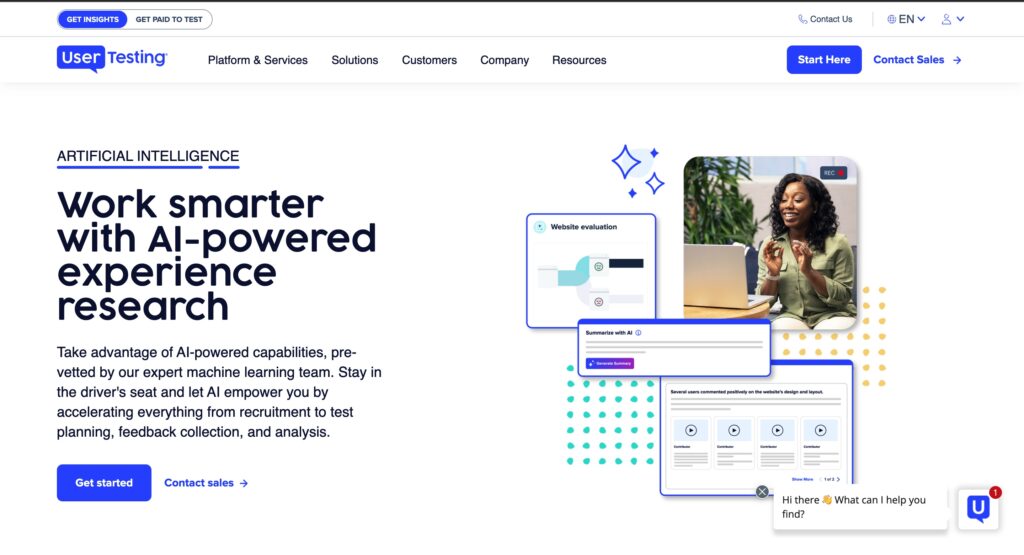
Why it’s great:
Collecting and analyzing customer feedback can be time-consuming. UserTesting’s AI automates sentiment analysis, identifies recurring pain points, and summarizes key takeaways from user interviews.
Key benefits:
- Faster analysis of large amounts of feedback
- Better alignment between customer needs and product updates
- Reduction in time-to-insight
Case Study:
A B2B SaaS company used UserTesting AI during the beta launch of a new product. Instead of manually sifting through hours of video feedback, the AI summarized key insights in 24 hours. This helped the company pivot and fix critical issues before the public launch, avoiding what could have been a major reputational setback.
6. Productboard with AI – For Roadmapping and Prioritization
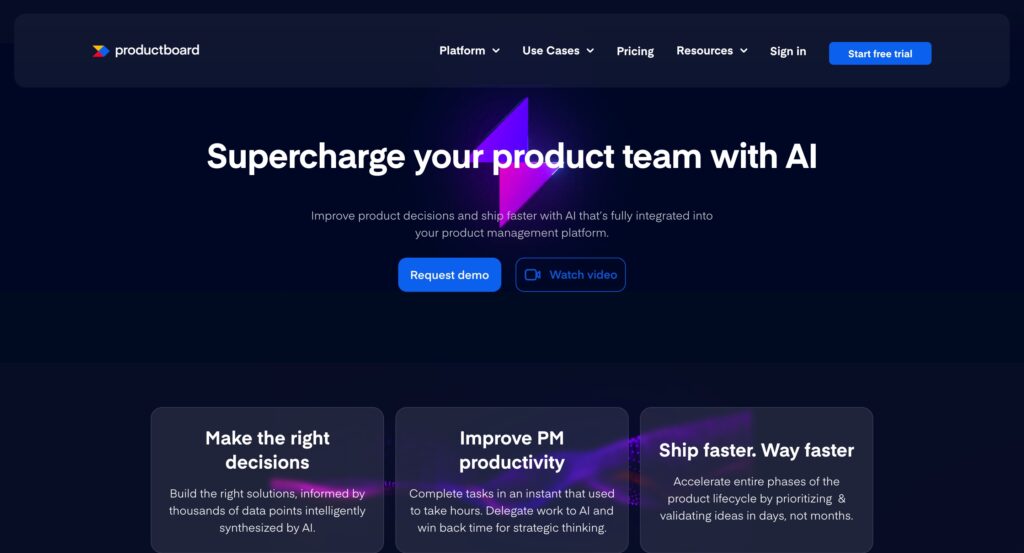
Why it’s great:
Productboard’s AI capabilities assist product managers in prioritizing features by analyzing customer feedback, market trends, and business impact.
Key benefits:
- AI-powered feature scoring
- Roadmap alignment with business goals
- Reduced bias in decision-making
Case Study:
A mid-sized HR tech company was struggling with feature prioritization. Too many requests from sales and marketing created tension between teams. After implementing Productboard AI, they established a data-driven prioritization process. This not only improved internal trust but also increased customer satisfaction scores by 25% within six months.
Final Thoughts
AI tools are no longer “nice to have” for product managers. They are essential for staying competitive, speeding up workflows, and making smarter decisions. By using tools like Notion AI, ClickUp AI, Figma AI, Amplitude, UserTesting AI, and Productboard, product managers can:
- Save time on repetitive tasks
- Gain faster and deeper insights
- Improve collaboration across teams
- Make data-driven decisions that directly impact growth
The future of product management is AI-powered. The sooner PMs embrace these tools, the more they can focus on what truly matters: building great products that customers love.

